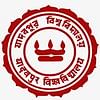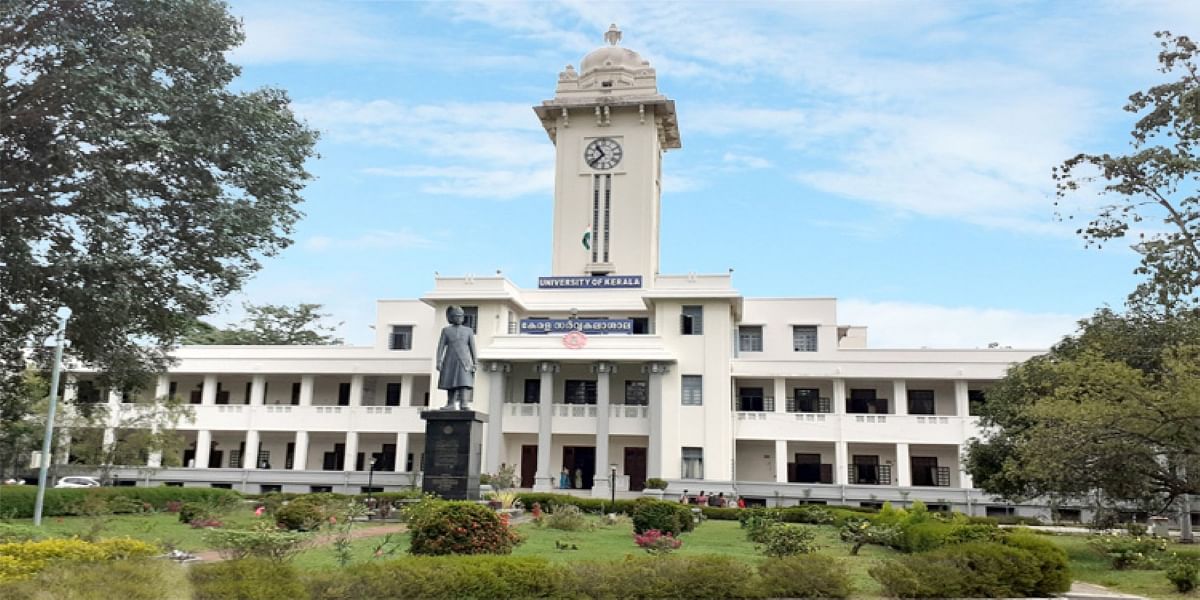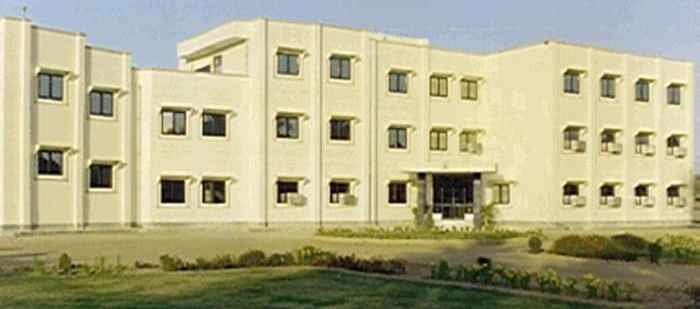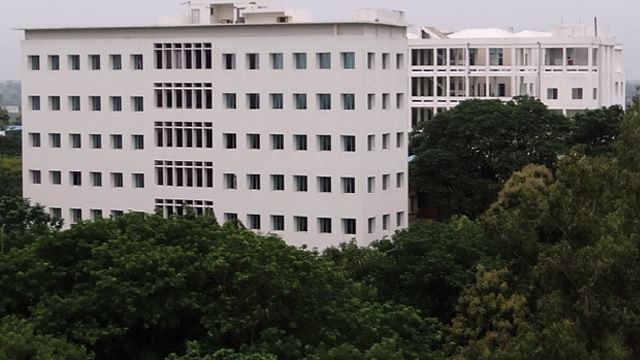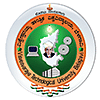BA Economics Subjects and Syllabus

BA Economics subjects curriculum typically includes courses in microeconomics, macroeconomics, econometrics, economic history, and various elective courses such as, development economics, monetary economics, etc. The BA Economics core subjects include Introductory Microeconomics, Mathematical Methods for Economics, etc.
BA in Economics Syllabus is divided into six semesters that deal with a wide variety of topics such as Business, Mathematics, the History of Economics to Financial Markets, Financial Systems, Foreign Economics Theory, and many more. BA Economics incorporates traditional teaching methods and approaches to assist students understand a variety of topics covered in their course of study which include case studies, guest lectures, seminars, and conferences, assignments, etc
The BA Economics Course focuses on equipping the students with the required knowledge and skills related to various aspects such as Costs Explicit & Implicit, Economic Analysis, Demand and Supply, etc.
Table of Contents
BA Economics Subjects - Core and Electives
The B.A Economics subjects cover a theoretical insight into the core subjects such as Micro Economics, Consumer Behaviour, Supply and Demand, etc. and also focus on elective subjects like Regional Economy, Economics of Education, Indian Economy, etc. Listed below are the core and elective BA Economics subjects:
BA Economics First Year Subjects
The first year BA Economics subjects cover topics like Microeconomics, Macroeconomics, and Mathematical Methods for Economics.. Listed below are the BA Economics subjects and the topics covered under them:
| Subjects | Topics Covered | Subject Type |
| Introductory Microeconomics | Theory of Consumer Behaviour, Demand and Supply Chain, Theory of Production, Production Costs: Concepts and Types | Core |
| Introductory MacroEconomics | Theories of Output and Employment, Investment & Theories of Interest Rate, Supply of Money & Demand for Money, Inflation & Business Cycles | Core |
| Mathematical Methods for Economics-I | Linear models, Mathematical optimization, differential decline and rise, Game theory, Agent-based computational economics | Core |
| Mathematical Methods for Economics-Ii | Preliminaries , Functions of one real variable, Single variable optimization, Integration of functions , Difference equations | Core |
| Environmental Studies | Introduction, Theory of externalities, The design and implementation of environmental policy, International environmental problems, Measuring the benefits of environmental improvements, Sustainable development | Ability Enhancement Course |
| English Communication Skills | Conversational Skills, Reading & Writing Skills | Ability Enhancement Course |
| Economics of Health and Education | Role of health and Education in Human Development, Microeconomic Foundations of Health and Education, Evaluation of health programs, The health Sector in India and Overview | Elective |
| Public Economics | Public economic theory, Indian Public Finances | Elective |
BA Economics Second Year Subjects
The second year BA Economics subjects explore the dynamics of Intermediate Macroeconomics, Data Analysis, Statistical Methods for Economics, etc. The BA Economics second year subjects and topics covered are detailed in the table below:
| Subjects | Topics Covered | Type |
| Intermediate Macroeconomics-I | Variety of macroeconomic policies, Economic Growth, Economic Stability, Demand and Supply curve, Inflation unemployment and expectations, Open economy methods | Core |
| Intermediate Macroeconomics-II | Economic Growth, Microeconomics Foundation, Fiscal and Monetary Policy, Schools of Macroeconomic | Core |
| Intermediate Microeconomics-I | Consumer theory and Production, Cost and Perfect Competition | Core |
| Intermediate Microeconomics-II | General equilibrium, efficiency and welfare, Market structure and Game Theory, Market failure | Core |
| Statistical Methods for Economics | Partial and Multiple Correlation and Regression, Sampling and Sampling Distribution, Tests of Hypothesis – Large Sample Tests, Small Sample Tests, Chi-Square Test and F-Test and Analysis of Variance | Core |
| Introductory Econometrics | Nature and scope of econometrics, Statistical concepts, Simple linear regression model: two-variable case, Multiple linear regression model | Core |
| Applied Econometrics | Stages in Empirical Econometric Research, Regression Diagnostics and Specifications, Advanced topics in Regression Analysis, Panel data models | Elective |
| Industrial Economics | Market Structure and Performance, Industrial Pattern, Industrial Finance, Classification of Industries | Elective |
BA Economics Third Year Subjects
The third year BA Economics subjects offer choices for students from discipline-specific elective courses. Listed below are the BA Economics subjects for the third year along with their topics covered.
| Subjects | Topics Covered | Type |
| Indian Economy I | Economic development since independence, Population and human development, Growth and distribution, International comparisons | Core |
| Development Economics I | Conceptions of development, Growth models and empirics, Poverty and inequality: definition, measures and mechanisms, Political institutions and functioning of the state | Core |
| Indian Economy II | Macroeconomic policies and their impact, Policies and performance in agriculture, Policies and performance in the industry, Trends and performance in service | Core |
| Development Economics II | Demography and development, Land labour and credit market, Individuals, communities and credit markets, Individuals, communities and collective outcomes, Environment and Sustainable Development, Globalisation | Core |
| Regional Economy | State and District Domestic Product, Trends in Population Growth, Structure of Agriculture and Allied Sectors | Elective (Discipline Specific) |
| Economics of Education | Cost of Education, Benefits of Education, Educational Planning | Elective (Discipline Specific) |
| Indian Economy | Structure of the Indian Economy, Indian Agriculture, Indian Industry and Services, Planning in India | Elective (Discipline Specific) |
| Financial Economics | Financial System, Commercial Banking, Money Market, Capital Market | Elective (Discipline Specific) |
| Demography | Meaning and Scope of Demography, Population trends in 20th century, Fertility, Migration | Elective (Discipline Specific) |
| Economics of Insurance | Essentials of Individual Retirement Planning, Role of Risk Management and Insurance, Regulation of Insurance | Elective (Discipline Specific) |
Semester Wise BA Economics Syllabus and Subjects
BA Economics syllabus is designed so that it imparts the necessary knowledge about economic sensitivity and develops confidence among the students to nurture them as economists, change and benefit them. Listed below is the BA in Economics semester-wise syllabus:
BA Economics First Year Syllabus
B.A 1st year Economics syllabus is divided into two semesters, each focusing on the fundamentals of Economics such as Evolution, Nature and Scope of Economics.
BA Economics 1st semester syllabus focuses on topics such as Microeconomics,Mathematical Methods for Economics, etc. Listed below is the BA Economic B.A 1st year syllabus:
| Semester I | Semester II |
| Introductory Microeconomics | Introductory Macroeconomics |
| Mathematical Methods for Economics-I | Mathematical Methods for Economics-II |
| Environmental Studies (AECC)-I | English Communication Skills(AECC)-II |
| Economics of Health and Education(Elective) | Public Economics (Elective) |
B.A Second-Year Economics Syllabus
The BA Economics second-year syllabus focuses on subjects such as Economic Growth, Economic Stability, Consumer theory and Production, Econometric Theory, etc.
The B.A 3rd sem Economics syllabus 2024 focuses on topics such Intermediate Microeconomics, Intermediate Macroeconomics, Micro Economics,etc. Listed below is the BA Economics 3rd semester and 4th-semester syllabus:
| Semester III | Semester IV |
| Intermediate Microeconomics-I | Intermediate Microeconomics-II |
| Intermediate Macroeconomics-I | Intermediate Macroeconomics-II |
| Statistical Methods for Economics | Introductory Econometrics |
| Applied Econometrics (Elective) | Industrial Economics (Elective) |
BA in Economics Third Year Syllabus
BA Economics 3rd year syllabus focuses on advanced subjects such as Indian Economy, Flow of Income, National Income, Public Finance, Taxation, etc. Listed below is the semester-wise BA 3rd year Economics syllabus:
| Semester V | Semester VI |
| Indian Economy-I | Indian Economy-II |
| Development Economics-I | Development Economi+cs-II |
| Regional Economy (DSE) | Economics of Education (DSE) |
| Economics of Education (DSE) | Indian Economy (DSE) |
| Demography (DSE) | Financial Economics (DSE) |
BA Economics Course Structure
The BA in Economics syllabus and course curriculum is structured into two categories, namely core and elective subjects. The course extensively focuses on imparting knowledge about the concepts of Economics to the students through various teaching methods and assessment patterns.
The students are generally evaluated on the following components:
- Final Year Projects
- Mid-Term Projects
- Mid Semester Examination
- Written and Oral Assignments
- Dissertations
- End Semester Examination
The general course structure is as follows:
- VI Semesters
- Core Subjects
- Elective Subjects
- Workshops
Also, Check: Economics Courses after 12th
BA Economics Teaching Methodology and Techniques
The BA in Economics Degree course curriculum includes traditional teaching methods and techniques that help students understand multiple topics taught in their classes. Some of the different teaching methodologies and techniques adopted in the course curriculum of BA in Economics degree course are as follows:
- Case Studies
- The emphasis of Practical and Theoretical Learning
- Guest Lectures, Seminars, and Conferences
- Group Assignment and Discussion
- Presentations and Modules
BA Economics Projects
Project Topics for the BA in Economics is a fantastic resource opportunity for students from economics, social science, and mathematics backgrounds and aspirants looking to complete the post-graduation program ahead.
The students can take BA in Economics project topics based on their subjects and syllabus, motivating them to develop additional knowledge to complete the project work. Some of the best project topics for the BA in Economics Course:
- Banking Sector Reforms
- Tax Reforms
- Digital India Movement
- Opportunity Cost
- Demand and its Determinants
- Production – Returns to a Factor
- Monopoly
- Import Substitution vs. Export Promotion
Also, Read: 50+ Economics Dissertation Topics
BA Economics Reference Books
Best books for BA in Economics help students understand various subjects and topics covered in the course curriculum. The BA in Economics reference books helps undergraduates expand their knowledge and vision about multiple topics covered in their classes.
BA Economics Books First Year
Students are advised to refer to the BA Psychology 1st year books listed in the table below:
| Books | Authors | Topics Covered |
| Principles of Economics | N. Gregory Mankiw | Confronting Scarcity, Choices in Production, Principles of Economics, Macroeconomics |
| Principles Of Economics: Principles of Economics (Pearson Series in Economics) | Karl E. Case, Ray C. Fair, and Sharon M. Oster | Scope and Method of Economics, Demand, Supply and Market Equilibrium, Aggregate Expenditure and Equilibrium Output, Money Demand |
| Essential Mathematics for Economic Analysis | Prof Knut Sydsaeter and Prof Peter Hammond | Linear Functions, Exponential Functions, Shifting Graphs, Basic Definitions. |
| Fundamental Methods of Mathematical Economics | Chiang, Wainwright | Nature of Mathematical Economics, Economic Models, Equilibrium Analysis in Economics |
BA Economics Books Second Year
The BA Economics 2nd year books are provided in the table below for students' reference
| Books | Authors | Topics Covered |
| Macroeconomics | Salvatore | Risk Analysis, Economics of Information, Game Theory, Market Structure, Efficiency and Regulation, and Financial Microeconomics. |
| Advanced Economies Theory | HL Ahuja. | The concept of Economic Efficiency and the Concept of Utility and its Critique |
| Economic theory and operation analysis | Baumol, William J | Analytic tools of optimization; Demand and production theory; Firms, games and decisions; General equilibrium, welfare and Distribution |
| People's History of India | Irfan Habib | Geological formation of India, Climate Change, Agriculture and the beginnings of exploitative relationship, Indus Civilisation |
BA Economic Books Third Year
The BA Economics 3rd year books used by most of the institutions in India are provided below:
| Books | Authors | Topics Covered |
| Indian Economics: An Uncertain Glory: India and its Contradictions | Jean Dreze and Amartya Sen |
India's Deprivations and Inequalities, Possibility of change through Democratic Practice. |
| Development economics | Debraj Ray | Theories of Economic Growth, Economic Inequality, Poverty and Undernutrition, Population Growth, Trade Policy, and the Markets for Land, Labor, and Credit. |
Top BA Economics Colleges
Top Arts Entrance Exams
BA Economics Fee Structure
FAQs
How many subjects are there in BA Economics?
As per UGC, the BA Economics course has 14 core subjects for a total of six semesters over three years.
What is the syllabus of BA 1st year economics?
The BA Economics first-year syllabus focuses on subjects such as Economic Planning and Development, Public Finance, Principle of Marketing, Macroeconomics, Indian Economy and language.
Is BA Economics difficult?
No, candidates interested in problem-solving, finance, budgeting, etc will find the course curriculum interesting and easier. Candidates who find these subjects challenging might find the course difficult.
Is economics a lot of math?
No, the BA Economics syllabus has basic mathematics and statistics included in the curriculum.
Can I take a BA in Economics without Maths?
No, BA Economics subjects involves basic mathematics and numerical equation in the course structure.

